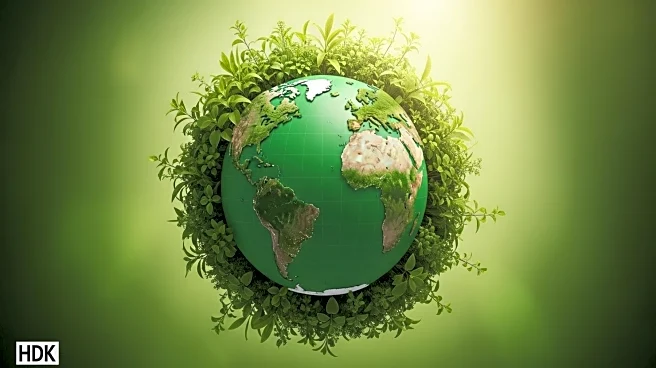What's Happening?
The European Union's Climate Commissioner, Wopke Hoekstra, has emphasized that over a hundred countries are advancing their climate goals, notably without the participation of the United States. This development comes as these nations commit to new plans aimed at reducing pollution and addressing climate change. The U.S. remains a significant outlier in these global efforts, as highlighted in a discussion with NPR's Andrew Limbong. The absence of U.S. involvement in these initiatives underscores a growing divide in international climate policy, with other global leaders moving forward independently to tackle environmental challenges.
Why It's Important?
The exclusion of the United States from these international climate efforts could have significant implications for global environmental policy and the effectiveness of climate change mitigation strategies. The U.S., being one of the largest contributors to global emissions, plays a crucial role in the success of international climate agreements. Its absence may hinder the overall impact of these initiatives and could lead to geopolitical shifts as other nations take the lead in environmental governance. This situation also highlights potential economic and diplomatic consequences for the U.S., as it risks being sidelined in global discussions on climate policy and innovation.
What's Next?
As the world continues to advance its climate goals without U.S. participation, there may be increased pressure on the U.S. to re-engage with international climate agreements. This could lead to domestic political debates on the country's role in global environmental efforts. Additionally, other countries may seek to strengthen their alliances and collaborations to fill the leadership void left by the U.S., potentially reshaping the landscape of international climate diplomacy.
Beyond the Headlines
The current situation raises ethical questions about the responsibility of major polluters in addressing climate change. It also highlights the potential for long-term shifts in global power dynamics, as countries that lead in climate innovation and policy may gain increased influence on the world stage. The U.S.'s absence could also spur technological advancements and policy innovations in other nations, as they strive to meet their climate commitments independently.









